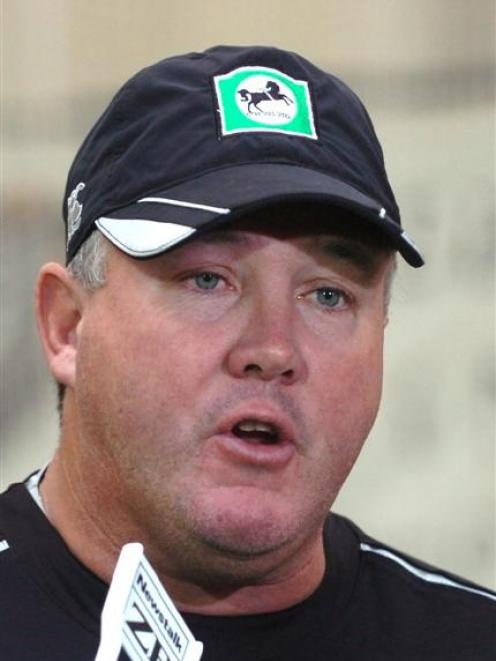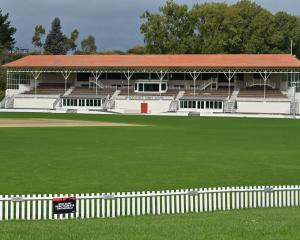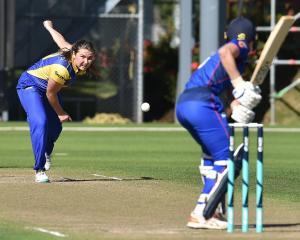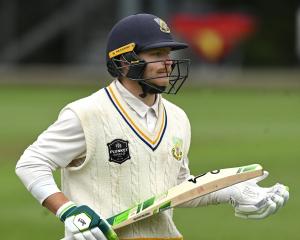
Despite what you might imagine, Afghanistan coach Andy Moles does not commute around Kabul in an armoured-plated Hummer with a mounted machine gun.
Nope. His vehicle of choice is a regular family-friendly sedan. It is best to blend in on your way to cricket practice in that part of the world.
''The whole idea is to blend in. If I drove around in a Hummer with a big machine gun on the side, everybody would think there is someone important in there - we want him,'' Moles said.
The former Black Caps coach resigned his post five years ago and is back in the country to help prepare the Afghanistan national side for its first appearance at the World Cup.
Cautious is perhaps the best description of how he feels about working in a war zone.
The threat of being kidnapped is something his security advisers take very seriously.
''There are some security concerns but you just have to be realistic. You can't just go walking around the streets in the evening.
''I stay in a secure hotel and get picked up by the ACB [Afghanistan Cricket Board] driver every morning and he drives me to work.
''We have security guards at the cricket and we practise behind security walls.
"You see helicopters flying overhead but you don't see or hear anything, and at the end of the day you drive back and stay inside the hotel.
''You just have to be smart enough to travel at different times of the day and take different routes.
"But apart from that, the biggest worry is you get lackadaisical and get a bit blase about your security. But so far, so good.''
It was dangerous but it was an exciting time to be part of Afghanistan cricket, Moles said, and that was compensation enough for having to take a different route to work each day and being confined to a hotel room each night.
''There is a lot of passion for the game in the country and the public adore their cricketers and support them unreservedly.
''The Taliban have said in the past that they see cricket as a uniting sport in the country and they endorse it.''
The Afghanistan Cricket Board was formed in 1995 and became an affiliate member of the ICC in 2001.
The country has gone from having no organised cricket 13 years ago to making the World Cup finals.
It is a tremendous achievement and Moles believes the best is yet to come.
Afghanistan is in the same pool as New Zealand and has an important opening game against Bangladesh.
If it can win that game and its fixture against Scotland in Dunedin on February 26, it could just be one upset way from sneaking into the quarterfinals.
That is the dream. It will take some work and improvements will have to be made.
Afghanistan's one-day game against Auckland on Thursday did not go terribly well.
The visitors were humbled by 177 runs. Afghanistan was missing ''four or five'' players, Mole said.
''We are a little bit weaker than we are come the World Cup ... and Auckland were very strong and played some excellent cricket.''
While it was a mismatch, Moles said is was a valuable learning experience ''and that is why we are here''.
Cricketers are paid well by comparison with the general population in Afghanistan and the sport is viewed as a potential platform for social mobility.
The facilities, Moles said, are surprisingly good aside from the ''odd bumpy'' outfield and some ''overused wickets''.
That was no fault of the groundsmen. Because the facilities are in such demand, they are used from dawn to dusk ''every day of the week''.
''The love for cricket is enormous.
''Ten or 12 years ago there was no organised cricket ... but it is in the schools now and the base can only get bigger and stronger. In another 10 years, I see no reason why Afghanistan can't be playing test cricket.''
''The groundwork is in place, now it is just a mater of upskilling the coaches, which I'm going to help with as well, and get people playing the game properly.''
Moles said he had no regrets about the way his stint with the New Zealand national team ended.
He resigned 11 months into a three-year contract because he had lost the support of the dressing room. Several senior players raised concerns about his ability in a post-tour review and that left his position untenable.
Asked if he was bitter, he replied: ''Not at all''.
''I saw Daniel Vettori this morning for the first time and we had a great chat. I was very pleased to be associated with the Black Caps and still am.
''I still look out for their scores. Brendon [McCullum] and Mike [Hesson] are doing a great job and they are going from strength to strength.
''I can only look back on my time in New Zealand with great happiness. I'm glad to be back to see old friends and new faces.''












